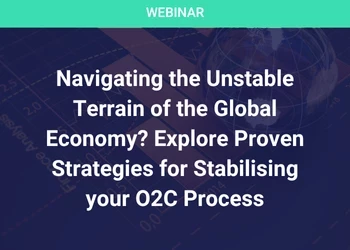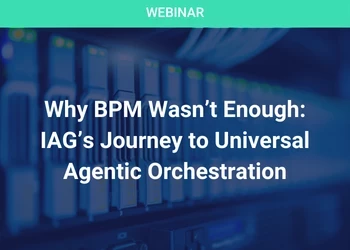Q&A: Jan Comhaire, Diageo
Add bookmarkSSON: It’s very important in these troubled economic times for Credit & Collections departments to demonstrate real value to their organizations. What kind of steps can C&C practitioners take at present to increase their perceived and actual worth?
Jan Comhaire: First of all you need to see the context, the type of business you’re acting in. Currently at Diageo we have the benefit of selling real products to real customers paying in real money; not every company might be in that position. As to some specific steps: keep at the front of your employees’ minds that at these times money is worth its weight in gold, so there needs to be a step up in the relentless chasing of getting the money in, but also from a processing or shared services perspective, a step up in terms of how the blockers to smooth cash collection can be removed.
SSON: Can you give us some examples of those blockers?
JC: The blockers might be that you have inclarity in trade terms; inclarity in payment terms; issues – all kinds, be it price-related or logistics-related – that don’t have a smooth resolution process. You should be expecting and driving for the accountability of each person or role along the flow of smooth cash collection to act and perform as the current circumstances require.
SSON: And those are things that companies can do without a big investment in new technology, aren’t they? These are relatively simple steps that can be taken.
JC: Yes, definitely. This is just about looking at what we’re currently doing; taking a step-change approach in driving improvements in the things we’re doing; moving for a true resolution of blockers; and getting an increased focus on the value of accounts receivable at this stage.
SSON: We heard recently from another SSON member who said that this might be a good opportunity for C&C to really demonstrate added value to their organizations and to force through a few things that might have been put on the back burner during the good times…
JC: I fully agree with that. If you’ve got a business it’s a complex environment, and you’re always juggling priorities. From a finance perspective the focus is quite clear in terms of making sure the DSO and the KPIs for cash collection get in the best possible state. These circumstances now give an opportunity to move your agenda upwards a little, meaning that you can have more pressure on other departments of the company like sales or business infrastructure to support you and overcome the critical hurdles that are an obstacle to smoother and better cash collection.
SSON: And that presumably comes hand-in-hand with a greater mandate from the board?
JC: Yes. It’s a key requirement: not only to deliver lip-service to the board, but to truly stand up to emphasise the priorities it has for the business - and to emphasise as well the opportunities it can create and the support it will give to the business overall in getting cash in, in the overall metrics and results of the company.
SSON: One of the dangers is that companies might get too zealous in their collections chasing and might put too much pressure on their customers. Is there any way that organizations can ensure that they’re getting their money, and on time, but that they’re not jeopardizing the good relationships they have with their customers?
JC: I see these times also as an opportunity to assess whether the relationships with customers are truly that beneficial for the company. That means that companies might be required to take a more firm position in terms of whether or not they want to continue with a certain customer – and, believe me, these hard calls may be painful for other areas of the company in terms of reaching other key numbers but they will deliver a more solid position on exiting this period.
SSON: Talking about Diageo specifically, is there anything you’re doing right now which you weren’t doing a few months ago, prompted by the economic crisis?
JC: Personally, what I’m doing currently and will continue to do over the next five or six weeks is getting my hands dirty – meaning I will, as a director, walk the floor even more; sit down with my credit controllers; understand what their issues are, and what the blockers are to further progress; challenging them about why further progress has not been made – but at the same time offering my support for breaking down some walls, getting some people to take accountability for moving things forward. This – and I’ve started already – is perceived as an enormous motivator as it’s not just signs and memos coming from above. It’s truly crucial that you can see a director working on the operational level supporting the credit controllers, or the people responsible for cash collection, in pushing things through.
SSON: Finally, Jan, what’s your opinion of how long we’re going to be in what look like pretty gloomy recessionary times – in Europe especially?
JC: I think – maybe after a few more big names have fallen – we’ll start to see the end of the tunnel, or at least the light indicating the end, in a few months. Two or three months. As for the recession, I believe we’re in it for 12, maybe 18 months. So the activities and actions we need to be focussing on aren’t just for the short term, but also impact upon the longer term – and I’m referring there to a review of the trade terms, a review of the payment terms, and a review of these critical relationships you have with customers.
[eventpdf]





















